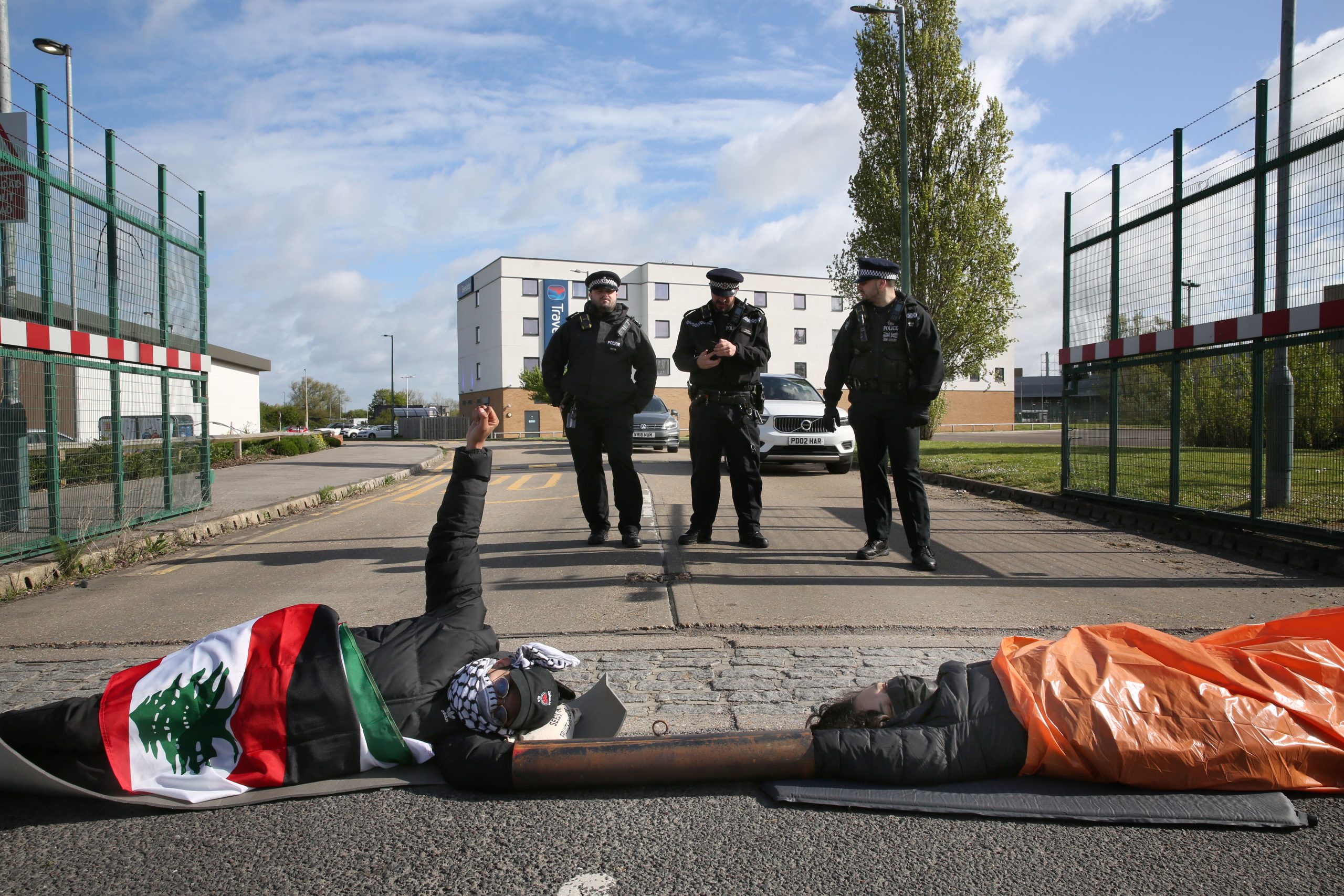MPs have recently voted in favour, 289-202, to allow for agency workers to be brought into a workplace by an employer during strike action, effectively circumventing the loss of the labour force during strikes. The proposed law, ‘’The Conduct of Employment Agencies and Employment Businesses (Amendment) Regulations 2022’’ would remove the law’s current prevention of this practice. Unfortunately, this is an unsurprising move by the government to further curtail the rights of trade unions and workers and is part of a long history of similar actions by previous governments. This article will look at the current state of UK employment law and its crushing effects on workers, followed by a more in-depth examination of the current changes and how they do nothing but further weaken an already weakened set of protections.
UK Employment Law – A Dark Affair
UK employment law is already some of the weakest in Europe. Individualised workers in the market face problems before they have even got into the workforce. As per the Employment Rights Act 1996, s.230, workers are split into several categories regarding their status, the main two being ‘employee’ and ‘worker’ (with employee being the hardest to fit into, but worker is not that much easier) and different rights depending on your classification. As an example, only employees have protection from unfair dismissal (s.94 ERA 1996) and the right to additional maternity leave (s.73 ERA 1996).
Such distinctions give employers immense power, they are free to construct contracts in order to ensure the least amount of rights possible (usually workers or some sort of self-employed contractor) and thus can dodge their obligations. Obviously, legal protections are never guaranteed under the capitalist authoritarian state of affairs we currently live in, but considering they help provide many workers with the most basic of rights on a day-to-day basis, this backdrop of different types of workers and different rights already creates a hostile environment. Whilst case law has begun to fight against these ‘sham’ contracts, it is still worrying that our rights depend on the courts, and require expensive and lengthy legal fights to gain them.
The story is even darker for trade unions. Readers will most likely be familiar with the horrendous weakening of unions under Thatcher, but the legacy continues. Secondary picketing remains illegal, and the ballot requirements for a strike are already so strict that I’m personally shocked that strikes even occur legally (a testament to workers organising it seems). This has been recently made worse under the Trade Union Act 2016.
This brief history is to paint a picture of the awful state of rights for workers in the UK, whilst these rights should never be taken as guaranteed, it is still an awful indictment of our system. Consequently, the recent changes regarding agency workers (that come alongside a background of negative capitalist media regarding strike action) are another unfortunate reduction in the minimum rights protections unions and workers already have, which will be explored in more detail below.
The New Changes
The government’s justification for new changes is similar to their justifications regarding the new Policing Act that brutally suppresses protest action – ‘’to reduce disruption’’. This justification also perfectly matches the capitalist media’s coverage of recent strikes, such as the RMT strikes.
Outside of the obvious counterargument to this, that being ‘’disruption is the fucking point’’, this argument hardly stands ground compared to the reasons behind why strikes are so necessary and important. Almost every single right that workers possess in recent times was won by strikes: minimum wage, working time regulations, sick pay, and holiday time to name just a few of the main ones. The balance of power between workers and employers is already so mismatched that strikes were the only way to create enough disruption to production to make a change. The state knows only violence, and so violence and disruption were the only way to win anything from it.
These rights have become so common they are taken for granted in the western World, and unfortunately how these rights were won is forgotten, or swept under the carpet by the biased media. It would be hoped that the general populace would be able to tolerate such ‘disruption’ considering the work that they carry out only has the protections it does due to the work of unions and strikes – and as someone who has spoken to people on the pickets recently, it does appear that many see how needed strike action is when it occurs. Hopefully, this enthusiasm continues once the negatives that come with the new changes the government has proposed regarding agency workers come to the surface.
The first notable issue has been quite concisely summed up by RMT General Secretary Mick Lynch. Agency workers are not trained in the numbers required to be able to fill in the work for most industries they would be used in. This leads to disproportionately higher chances of accidents, for both workers and those using the services if it is a service industry. As mentioned above, agency workers have significantly fewer rights than other types of workers, and as such their position is even more compromised when put into the dangerous situations the government wants them to go into.
This leads to another problem regarding the usage of agency workers, it is yet another avenue being used by the government to turn public opinion against that of striking workers. I would not be surprised in the slightest if, when the next strike hits, the government will spin the narrative to that of ‘evil trade unionists’ causing disruption and that they have ensured ‘the economy can continue’ with agency workers. Moreover, it will be easy for them (in the likely event of problems regarding agency workers due to their lack of training) to state that these accidents are the fault of the striking workers forcing them to use agency workers and not the incompetence and cruelty of the capitalistic state.
Furthermore, the removal of the agency worker exemption has once again tipped the negotiating power in the favour of the employer. On a scale that is already so unbalanced, it can hardly be called a ‘negotiation’, allowing employers to threaten agency workers once again tips the balance out the workers’ favour. In a scenario where the employer has all of the power, the majority of the income from the labour, and all the influence regarding those in power – a strike is one of the only ways to actually cause disruption to them. Legal strikes have so many barriers, and now the employer can prevent a majority of the disruption by bringing in agency workers – at great risk to the agency workers’ personal safety and the safety of their customers.
These issues are a few of many that will come to pass if this amendment manages to pass into law. It is another blow to an already heavily beaten down set of legal protections and another damning indictment of how the capitalist class and the authoritarian state work hand in hand to ensure profits remain high and workers remain weakened in a system not designed for them to succeed.
Conclusion
As anarchists, we have long been critical of the traditional trade union movement. Their position of compromising and gaining benefits under capitalism, without attempting to change capitalism, is where we divert. Furthermore, we are also aware that such legal protections are never truly protected, as summed up well by Kropotkin (1885): ‘’Humanity retains only the rights it has won by hard struggle and is ready to defend at every moment’’. Only when the authoritarian capitalist state that towers above us has been overthrown and replaced can we ever truly consider ourselves free by any meaningful definition.
However, despite these presumptions, anarchists have long been trade unionists, fighting alongside mainstream trade unions and within our own revolutionary, anarcho-syndicalist unions (such as IWW and Solidarity Federation). Trade unions are often at the front of direct action against the state, with the recent widespread RMT rail strikes being a primary example of how sectors can be shut down by united workers. Trade unions also allow for large numbers of workers to act as a united force, as well as providing an avenue for more radical organising – and revolutionary unions can go even further. It is for these reasons that such attacks on unions in the law must always be fought. The protections we currently have may be mere dregs of what we deserve, but they can help us in the day-to-day living of our lives, and since the government seems determined to continue to fund capitalist interests by crushing unions, reducing workers’ rights, deporting asylum seekers, and attacking basic human rights, it is more important than ever that the solidarity we have between each other extends into action that fights back against those who oppose us getting what we truly deserve, which is a life worth living for all.
~Don
Image by Guy Smallman.








